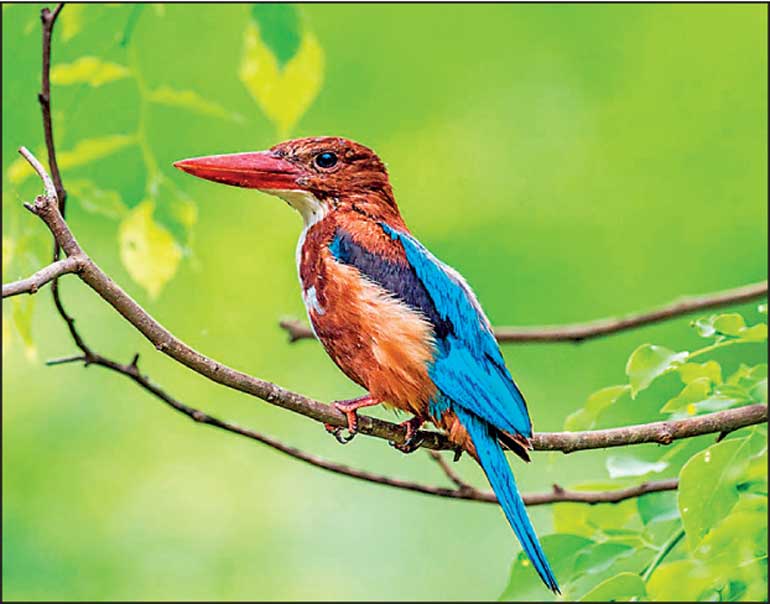Saturday Feb 21, 2026
Saturday Feb 21, 2026
Saturday, 11 February 2023 00:00 - - {{hitsCtrl.values.hits}}

We have missed out on the immense role earth studies, wildlife and bird life can play in linking conflicting or hostile or biased human beings
On the sidelines of the international academic conference on harmony and reconciliation of the Vavuniya University last month, it was arranged for the delegates to visit the forest conservation areas within the Vavuniya University premises; a haven of a few acres of plants, trees shrubs, birds and much wildlife including peacocks and deer. In conversation with Dr. Wijeyamohan Shanmugasundaram of the Faculty of Applied Wildlife Conservation, it is understood that the university is planning to transform this space into a nature education sphere while also planning to use it actively for aspects such as local and foreign nature based tourism and peacebuilding.
As we have mentioned in our main article this week the lack of attention, love and respect for the earth is costing us more than an arm and a leg. It is costing us our lives as we see in earthquakes, landslides across the world and all the buildings we construct pristine mountain territory end up falling like cardboard doll houses.
A good segment of humanity is dying fighting over religion, ethnicity, race, language, land space while another segment is dying regardless of any of these boundaries because mother earth is least bothered about the definitions we put forth to identify ourselves.
As this writer noticed, across the country, most academics and students linked to university faculties connected with those such as environment, zoology and wildlife and dealing with subjects such as animal and bird habitat and migration have a natural almost subconscious disregard for human segmentation through race or religion.
For example the young Giomini Panagoda of the Department of Zoology and Environment Sciences of the Faculty of Science, Colombo University spends much of her time at the research station at Thalaimannar and seems fully comfortable living on her own there.
I ask her how it is for a Sinhalese to live in this area all alone and as she shrugs and smiles I detect that she did not even recognise the question. As we were in a group I quipped in good humour that she had picked up the vibes of the birds she studies at the Adams Bridge Marine National Park which was the location of the full-day excursion planned for us after finishing the Vavuniya University nature conservation location.
The group we were in consisted of around 15 local and international academics and those working in the peacebuilding field internationally. In an academic setting of a conference we had been talking about diverse aspects of connecting human beings and preventing conflict and when I deeply analysed the manner of the academics and researchers of wildlife, as mentioned above, there was quite a serious difference. I observed that those connected with studying nature and the wild found it very easy to converse with people, irrespective of boundaries and as some academic from another stream – I think it was music, quipped to the wildlife focused academics: “You guys are also like migratory birds – you fly all over the place so freely and you seem to think that we are all birds.” It is Giomini who was the specialist on birds in the group (studying migratory ecology) and researching migratory birds who come to Mannar, and she laughed good-naturedly.
Indeed, in all the global peacebuilding strategies discussed at conferences, we have missed out on the immense role earth studies, wildlife and bird life can play in linking conflicting or hostile or biased human beings.
In our upcoming editions we will be especially focusing on this topic and the potential of uniting human beings through learning to love the earth to which we are all equal. SV